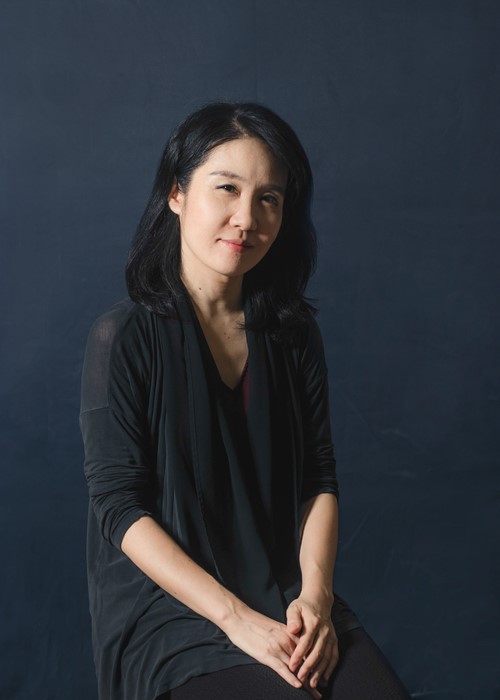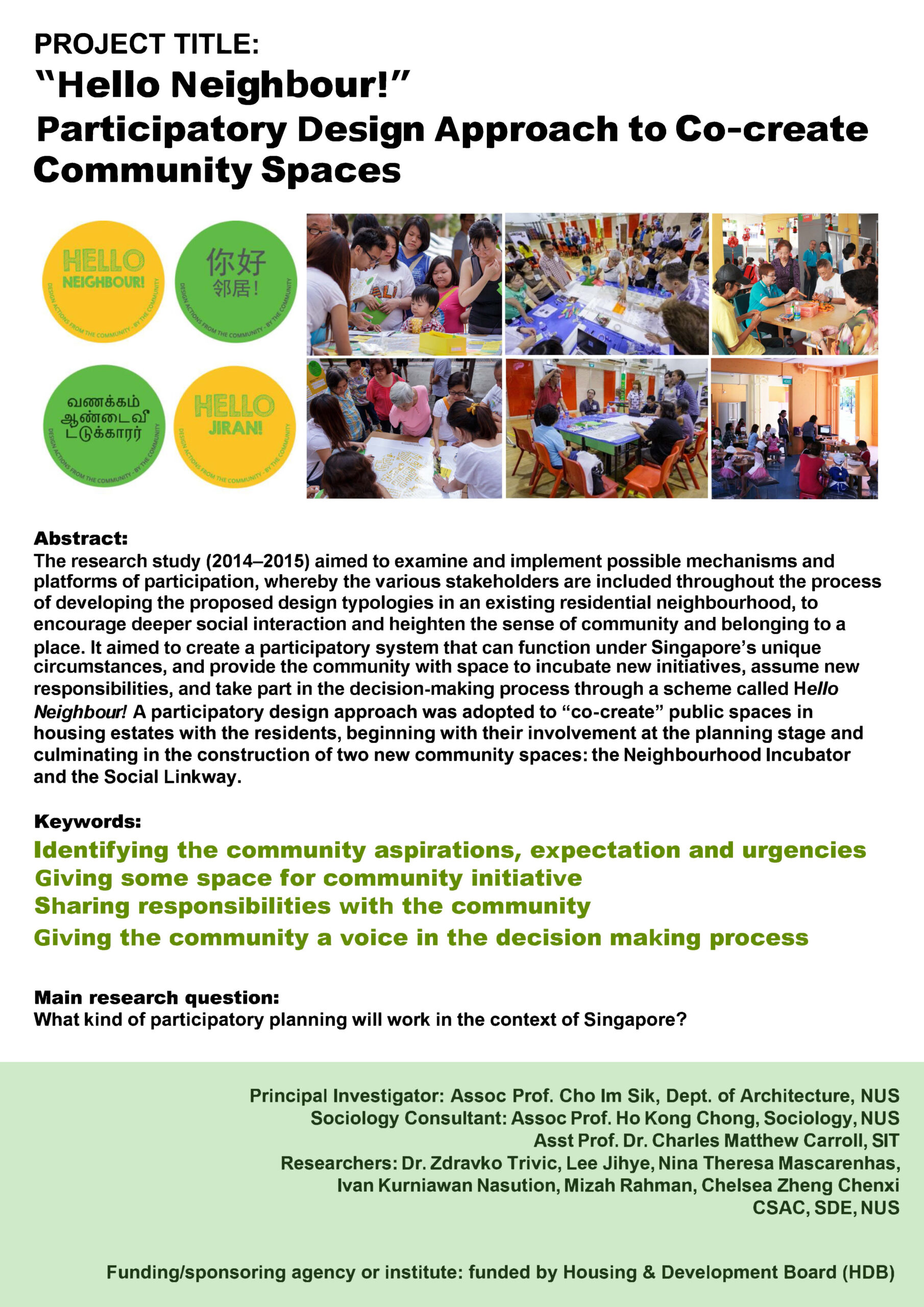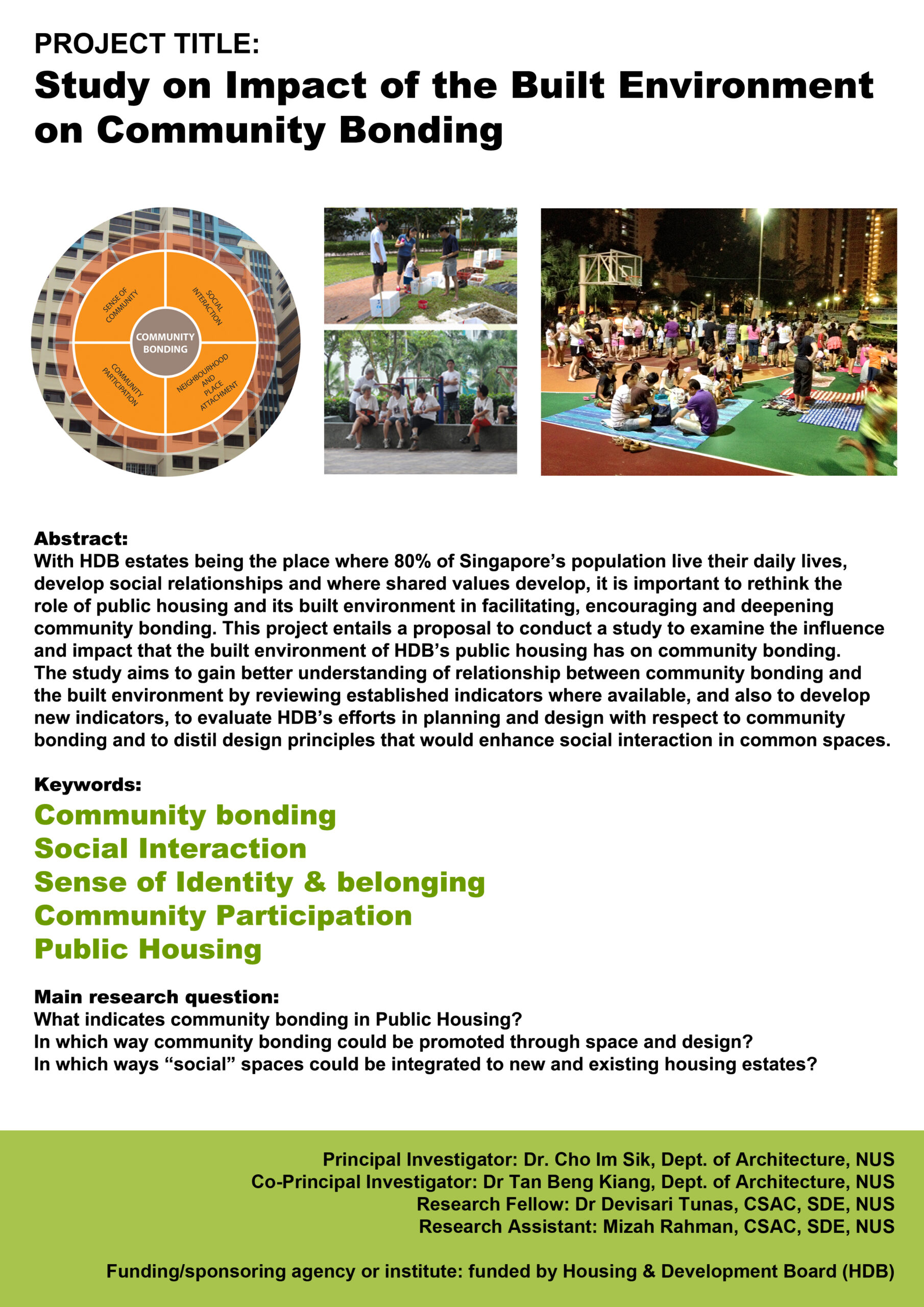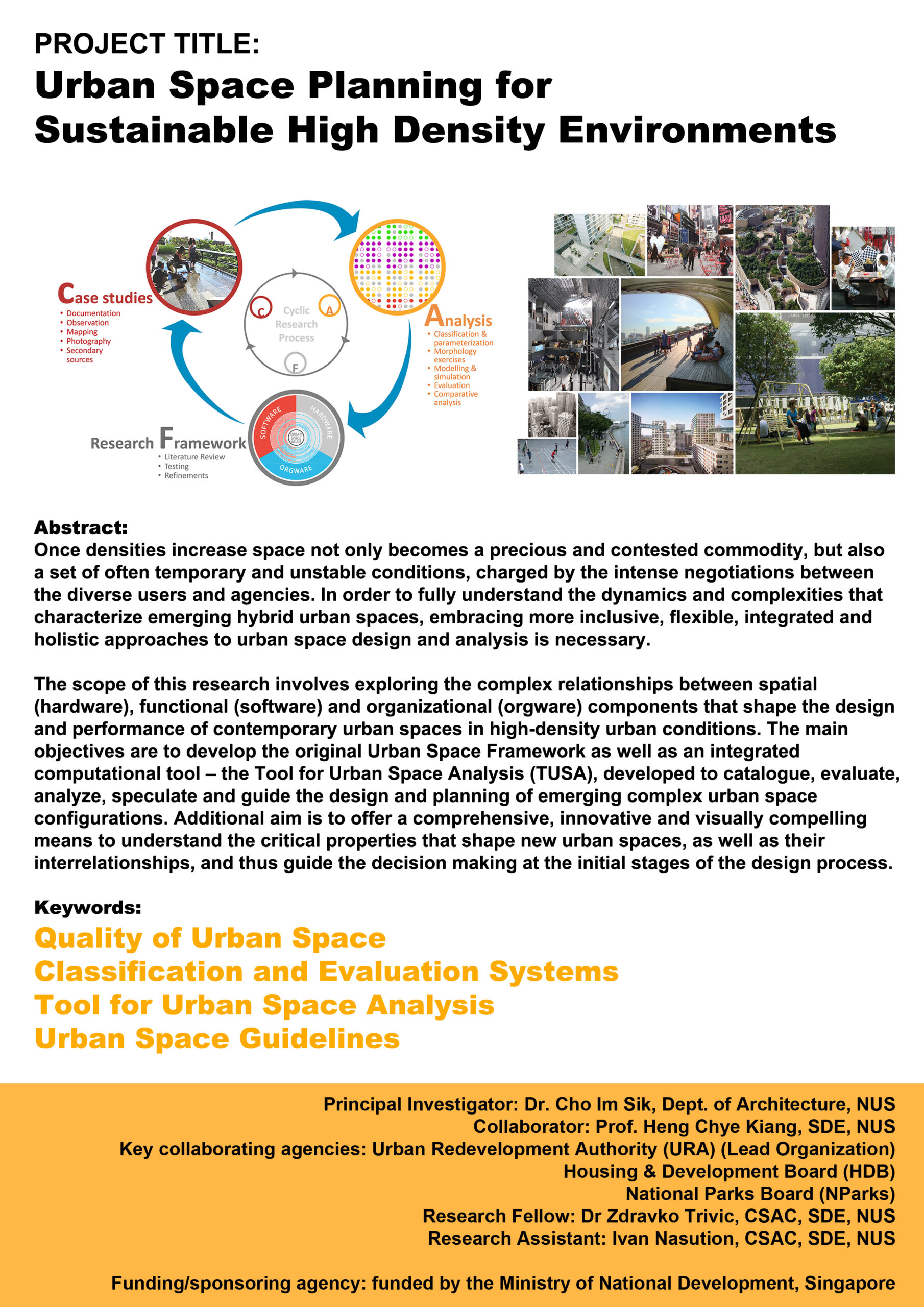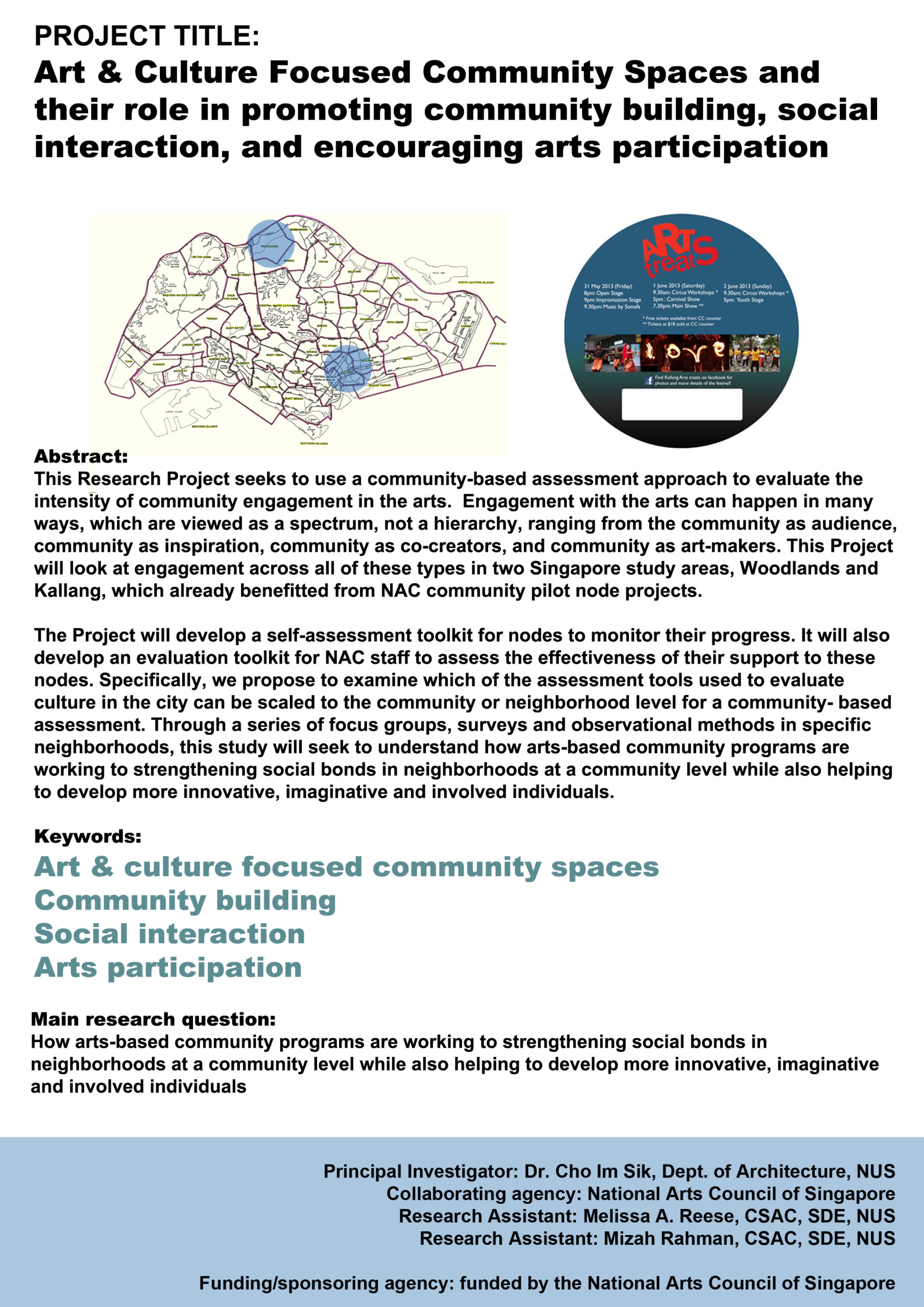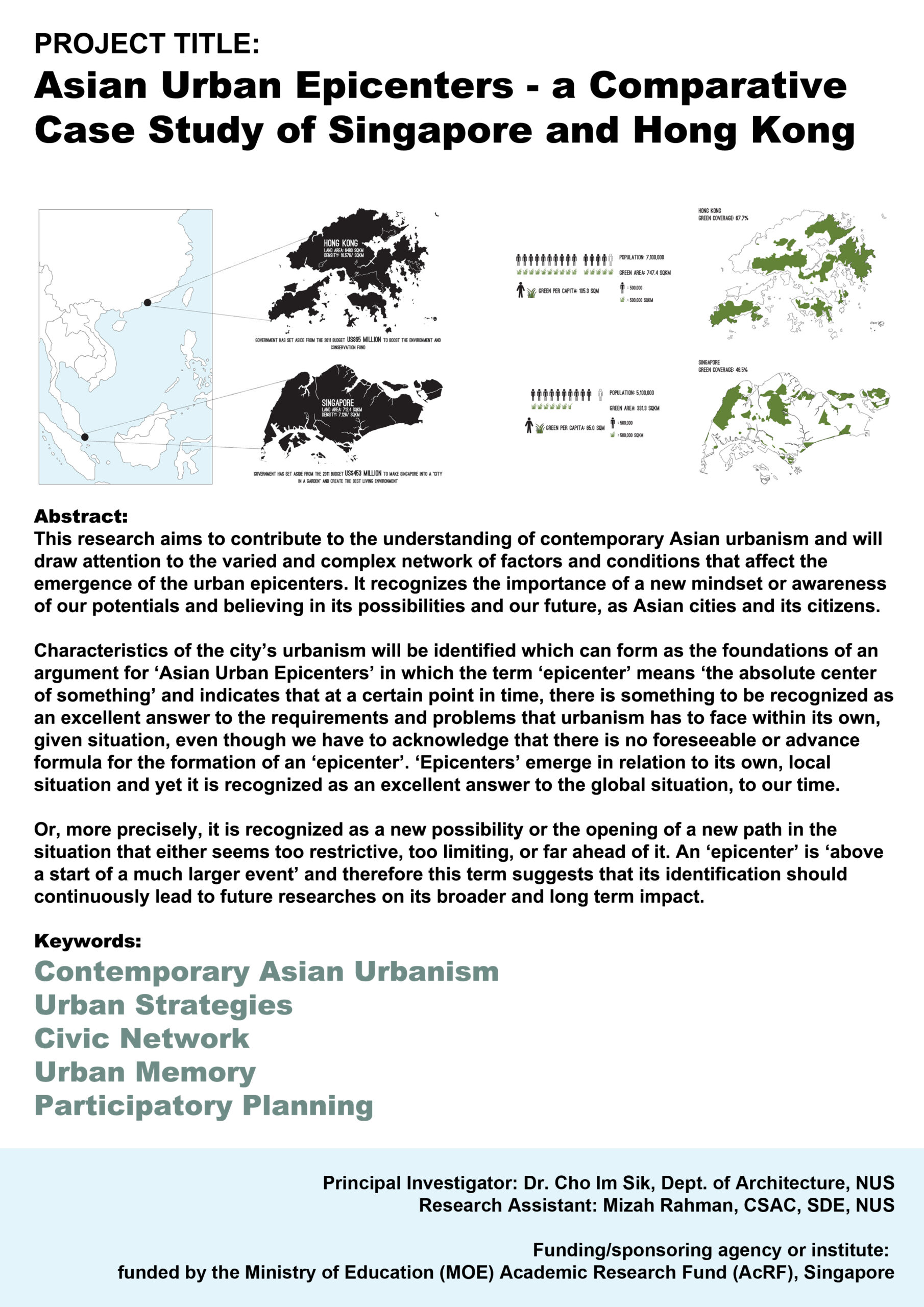CHO Im Sik (Dr)
Associate Professor (Tenure Track)
CHO Im Sik (PhD) is Associate Professor (tenured) at the Department of Architecture, National University of Singapore (NUS). She has previously served as the Director of the Master of Urban Planning Programme, Leader of Urbanism Research Cluster, and Deputy Head at NUS' Department of Architecture. Her research addresses the challenges and opportunities that Asian cities face with accelerating social change, focusing on the social dimension of sustainable development.
Cho Im Sik's research expertise lies in urban space planning for sustainable high-density environments and design for social sustainability involving community-based, participatory approaches. Her research on HDB neighbourhoods and communities was recognised as one of the High Impact Research in NUS and its research outcome was included in the Singapore Sustainability Blueprint (SSB) 2015, launched by the Prime Minister and reflected under the chapter of ‘an active and gracious community’ and thrust of ‘vibrant spaces for the community’, as an exemplary case that empowers the community to be involved in designing, maintaining and activating public spaces.
She has extensive research experience in high-density Asian cities and has established a wide network of experts and research collaborators in these cities. Her books include Emerging Civic Urbanisms in Asia: Hong Kong, Seoul, Singapore, and Taipei beyond Developmental Urbanization (with Križnik, B. and Hou, J.), Re-framing Urban Space: Urban Design for Emerging Hybrid and High-Density Conditions (with Heng. C. K. and Trivic, Z.) and Community-based Urban Development: Evolving Urban Paradigms in Singapore and Seoul (with Križnik, B.).

The contributions in this volume provide critical insights into how the changing state–civil society relationship affects the recent surge of civic urbanism in Hong Kong, Seoul, Singapore, and Taipei, and the authors present eighteen cases of grassroots activism and resistance, collaboration and placemaking, neighbourhood community building, and self-organization and commoning in these cities.

FUNDED BY SOCIAL SCIENCE AND HUMANITIES RESEARCH (SSHR) CO-CREATION GRANT (MOE), A NEW PILOT DEVELOPED BY THE MINISTRY OF EDUCATION AND THE PRIME MINISTER’S OFFICE STRATEGY GROUP TO PROMOTE INNOVATIVE AND MULTIDISCIPLINARY SSHR ON ISSUES OF NATIONAL SIGNIFICANCE AND ENCOURAGE CLOSER PARTNERSHIP BETWEEN GOVERNMENT AND ACADEMIA TO CO-CREATE RESEARCH OF HIGH IMPACT TO SINGAPOREANS AND THE SOCIETY; IN COLLABORATION WITH MND, URA, HDB, NPARKS, NEA. FOR MORE INFORMATION: HTTPS://WWW.STRAITSTIMES.COM/SINGAPORE/NEW-INITIATIVE-GETS-TOA-PAYOH-RESIDENTS-INVOLVED-IN-SOLVING-ISSUES-LIKE-BULKY-WASTE-DUMPING HTTPS://NEWS.NUS.EDU.SG/INTEGRATED-COMMUNITY-PLATFORM-TO-TACKLE-MUNICIPAL-ISSUES-PILOTED-IN-TOA-PAYOH-EAST/
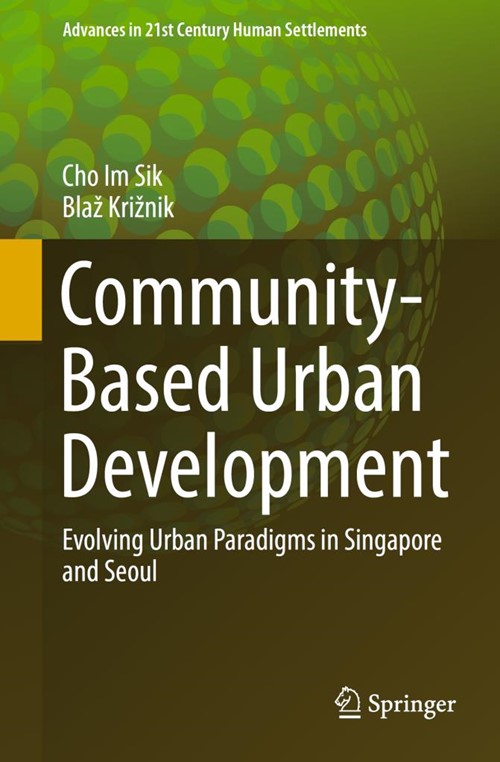
THE BOOK COMPARES DIFFERENT APPROACHES TO URBAN DEVELOPMENT IN SINGAPORE AND SEOUL OVER THE PAST DECADES, BY FOCUSING ON COMMUNITY PARTICIPATION IN THE TRANSFORMATION OF NEIGHBOURHOODS AND ITS IMPACT ON THE BUILT ENVIRONMENT AND COMMUNAL LIFE. BY APPLYING A COMPARATIVE PERSPECTIVE TO UNDERSTAND THE EVOLVING URBAN PARADIGMS IN SINGAPORE AND SEOUL, THIS UNIQUE AND TIMELY BOOK OFFERS INSIGHTS FOR SCHOLARS, PROFESSIONALS AND STUDENTS INTERESTED IN CONTEMPORARY ASIAN URBANISATION AND ITS FUTURE TRAJECTORIES.
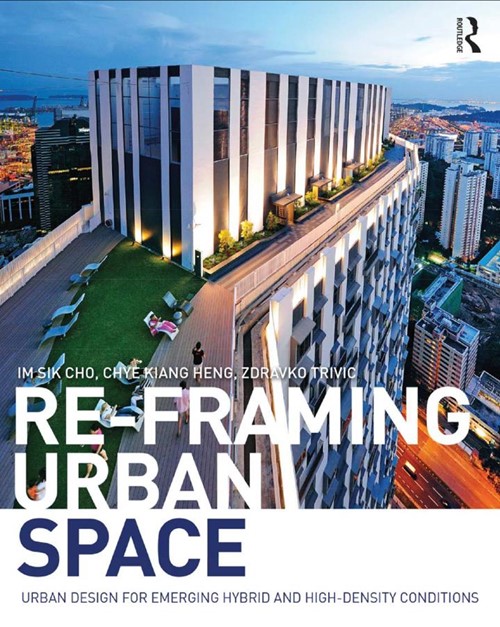
Through an innovative and integrative research framework, Re-Framing Urban Space guides the assessment, planning, design and re-design of urban spaces at various stages of the decision-making process, facilitating an understanding of how enduring qualities are expressed and negotiated through design measures in high-density urban environments. Visually compelling and insightful, Re-Framing Urban Space provides a comprehensive and accessible means to understand the critical properties that shape new urban spaces, illustrating key design components and principles. An invaluable guide to the stages of urban design, planning, policy and decision making, this book is essential reading for urban design and planning professionals, academics and students interested in public spaces within high-density urban development.
